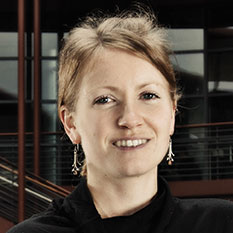What do you mean by that?
Neha Sangwan says better communication can reduce burnout and improve performance on health care teams. She’ll deliver a keynote address at Medicine X | ED 2017.
A doctor yells out an order in the ER. A nurse wonders if his colleague would be willing to take over his weekend shift. An assistant asks, “Do we have time to squeeze in one more patient? She’s 15 minutes late.”
Whether or not we’re aware of it (most of us aren’t), humans are engaged in an almost constant search for agreement. We make demands. We ask for favors. We proffer invitations. And, with rare exception, we do this all with an extreme lack of clarity.
In mellow environments, that can work; in the hospital, Neha Sangwan, MD, says, vague verbal exchanges and their progeny, missed expectations, are a major contributor to workplace stress.
“Sometimes we can be passive aggressive. In times of conflict, we often talk about each other, not to each other,” Sangwan says. “And when we do that over the years, we end up creating a toxic work environment that literally makes us sick.”
Sangwan knows that reality from the inside out. She experienced it herself. High emotional stakes. Strict hierarchy. Power struggles. Long shifts. Too many patients. Not enough time. The self-critical eye of a lifelong high achiever. The inability to say no.
All of it led to burnout, and a career pivot. Today, in addition to running a private practice, Sangwan is focused on getting the medical system to look out for doctors, too — for their own sake, but also for better outcomes. She calls her program “Self-Care in Healthcare.”
“We try to focus everything on the patient,” Sangwan says. “And that’s critical. I’m just wondering, who’s addressing the elephant in the room — the way we, as providers, interact with each other?”
Simple yet profound tools can help us navigate what we believe, what we want and how that changes when we’re in relation to others, she says. One example: If you hear an unexpected comment, rather than reacting, try asking for clarity by saying, “What do you mean by that?”
When someone says something that surprises or challenges us, we tend to stop breathing and tense up. Next time, Sangwan advises, try taking a deep breath and feel your chest and abdomen expand. This helps you hit your “human pause button.” It gives you time to think. “Get curious, not furious,” she says.
Over the years, these experiences strengthen relationships and build trust, Sangwan says. They help people develop psychological trust and the ability to engage in healthy conflict — basic pillars of high-functioning teams.
For those of us who visit the doctor afraid and intimidated, who always show up a bit late after bad traffic and parking problems, that’s good news. We might meet someone better prepared to field the big unspoken question: Am I going to be okay?






